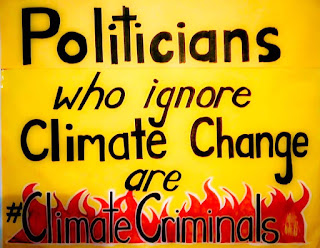 |
| Green New Deal: Rolling Stone |
By Tim Dickinson April 6 2020
Decarbonizing will cost trillions of dollars, but it’s an investment that will have big return — for the economy and the environment
Opposition to the Green New Deal is often framed as a matter of cost. President Trump’s re-election campaign blasted the “radical” plan, claiming it would “cost trillions of dollars, wreck our economy, and decimate millions of energy jobs.”
But science shows that the costs of unchecked global temperature rise
are far higher than transitioning to clean energy — which will, in fact,
boost the economy.
“Everybody thinks, ‘Oh, you have to spend a huge amount of money,’” says Mark Jacobson, a civil and environmental engineering professor at Stanford University. “Well, yeah, there’s an upfront cost, but this is something that pays itself back.”
The coronavirus crisis is changing the world’s comfort levels with massive expenditures. Fresh on the heels of a $2.2 trillion economic rescue package, President Trump has begun calling for another $2 trillion infrastructure package to create jobs. Across the political spectrum, politicians are anticipating that the economy will need something approximating a New Deal to spring back to life after the pandemic subsides. And climate advocates are making the case that we can use this disaster response to invest in renewable energy, to ward off an even more dangerous crisis down the line.
 |
| Climate criminals |
Global warming lowers global GDP, according to a 2019 paper co-authored by Cambridge University economists, who project that “a persistent rise in temperature, changes in precipitation patterns and … more volatile weather events” will slow productivity and investment, as well as damage human health. Holding warming to 2 C can limit the negative impact to one percent of global GDP per capita by 2100. But runaway climate change would crater that GDP figure by seven percent worldwide, and by 10.5 percent in the
 |
| Only 1m sea rise Mumbai |
“Climate change is pain,” Michael Mann, a top climate scientist, recently testified to Congress. “Anyone who tells you differently is selling something — most likely fossil fuels.”
"These upfront costs, however, are a true investment. “It’s not just a doling out of government money with no return on it,” Jacobson says.
By 2050, this transition avoids $3.1 trillion a year in climate damages.
The green energy itself is also cheaper — saving $1.3 trillion a year for consumers over the fossil-fueled status quo.
Ending combustion would also save 63,000 lives a year otherwise lost to air pollution.
Most surprising: The study projects that a carbon-free economy increases energy employment. While 2.2 million fossil-fuel jobs would be lost, they would be replaced by 5.2 million permanent clean-energy jobs.
Read the complete Rolling Stone article
Related : The Harsh Economics of Climate Change: Economics Explained
decarbonisation, #greennewdeal, #greenrecovery, #climatechange, #save the earth, coronavirus, Paris Agreement, #economy,
#jailclimatecriminals
No comments:
Post a Comment